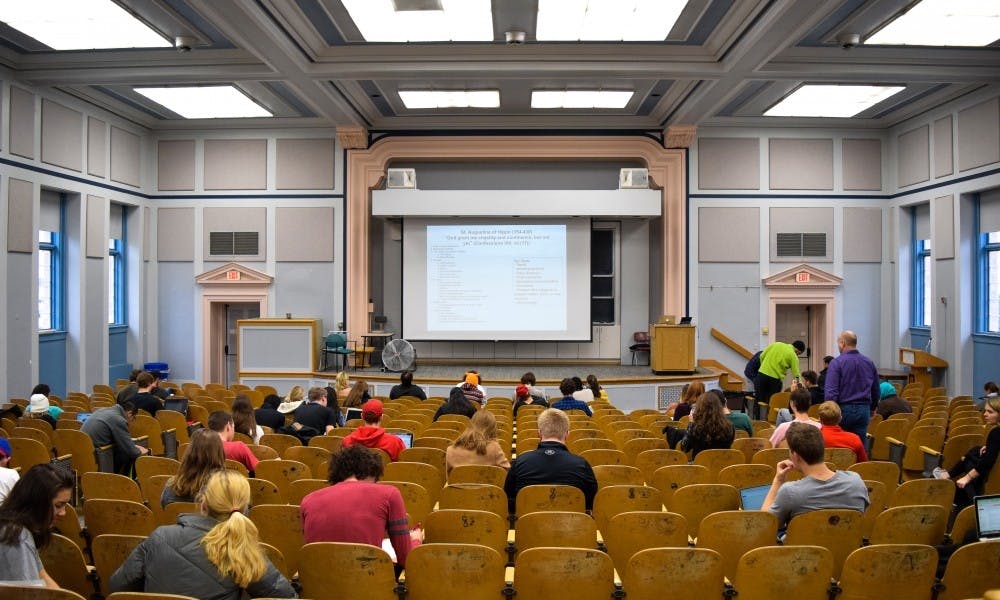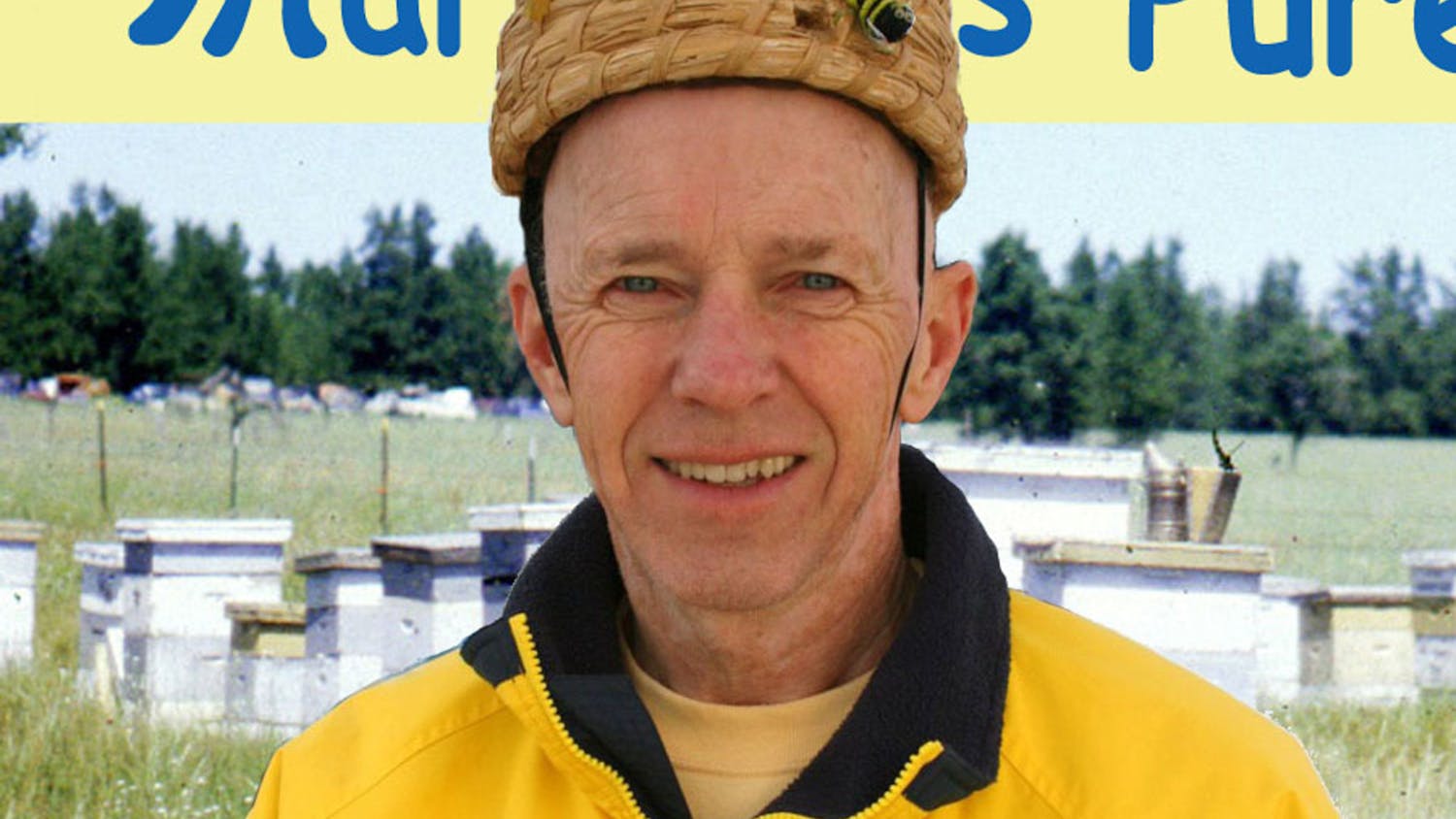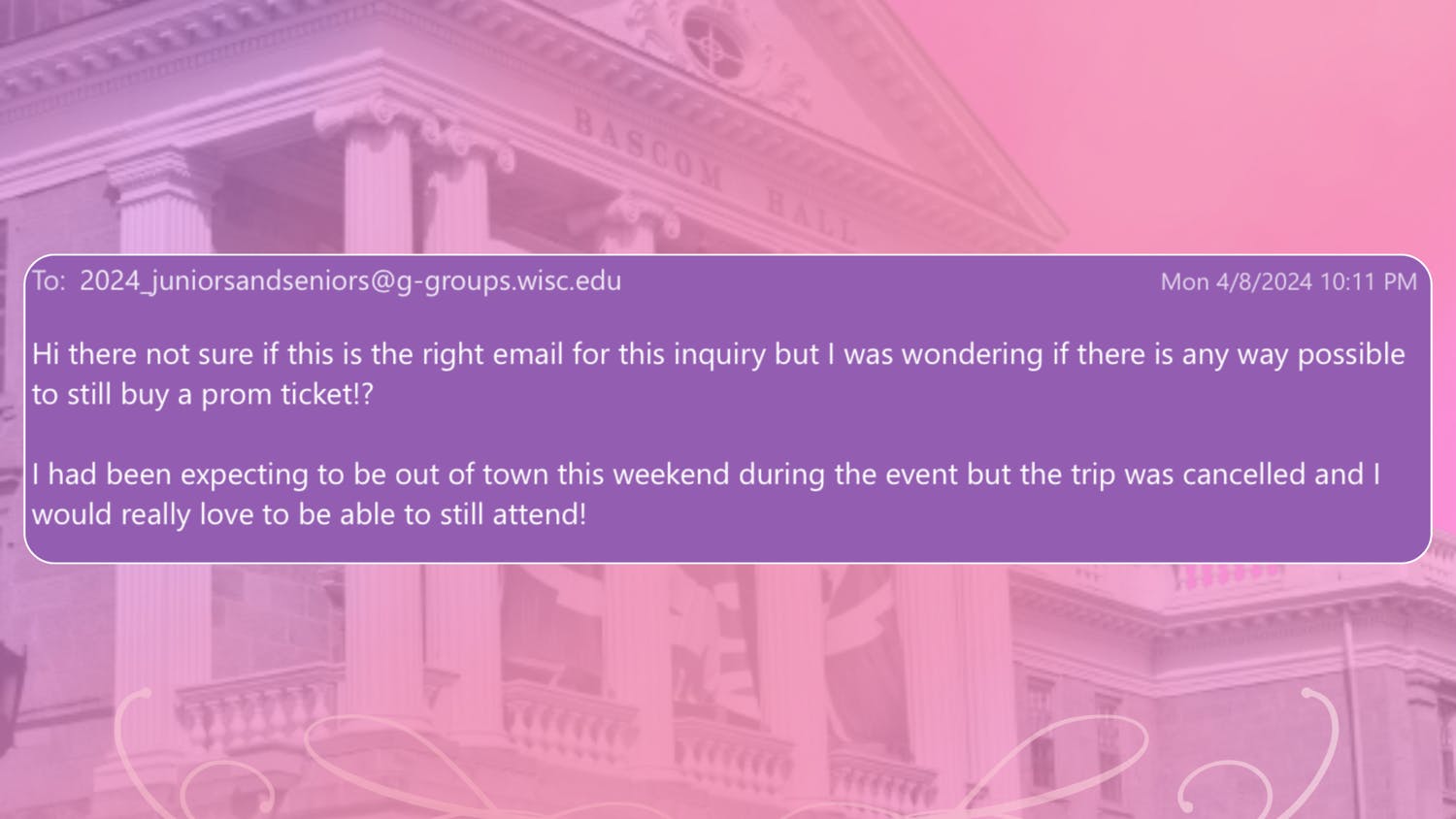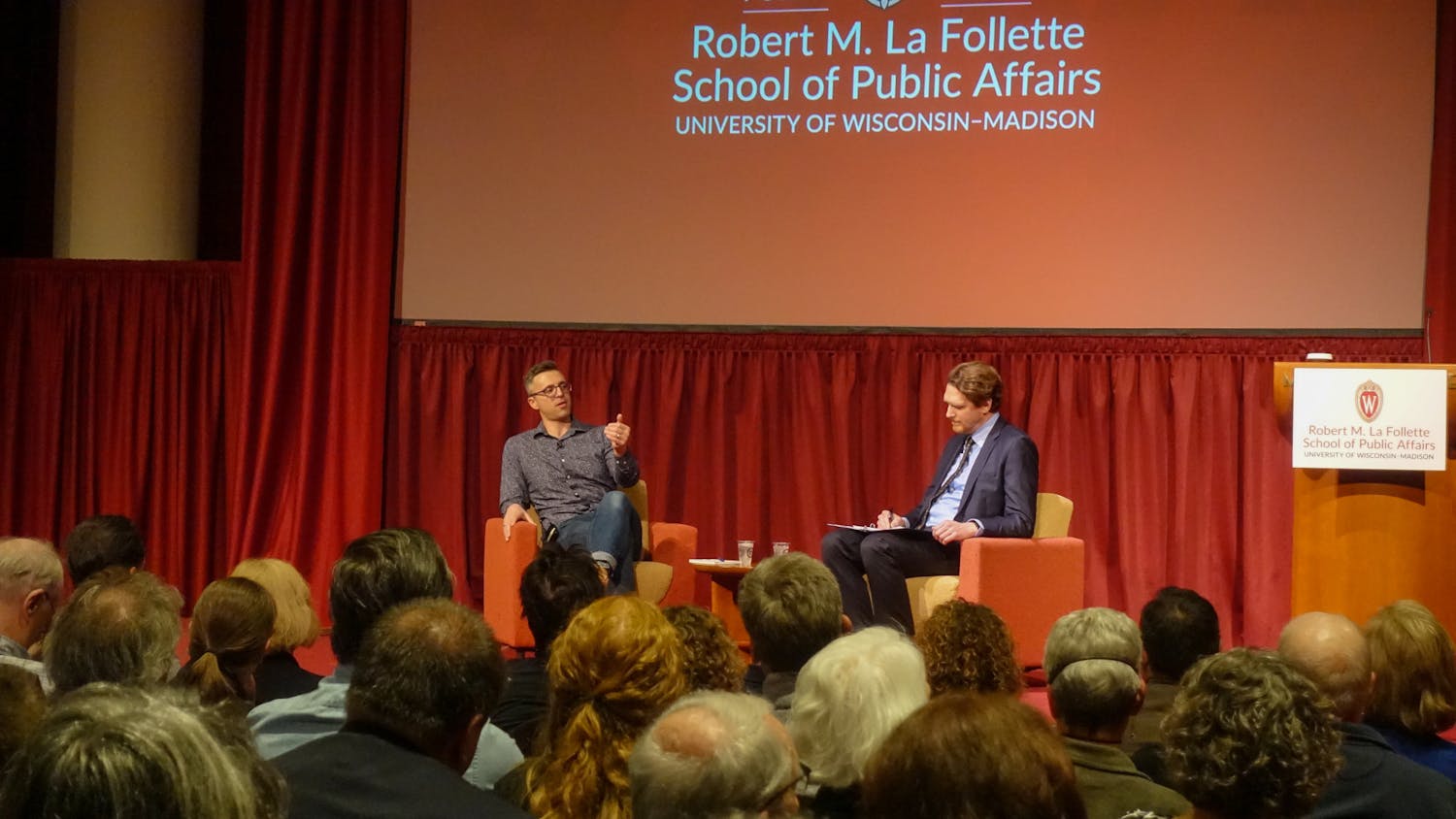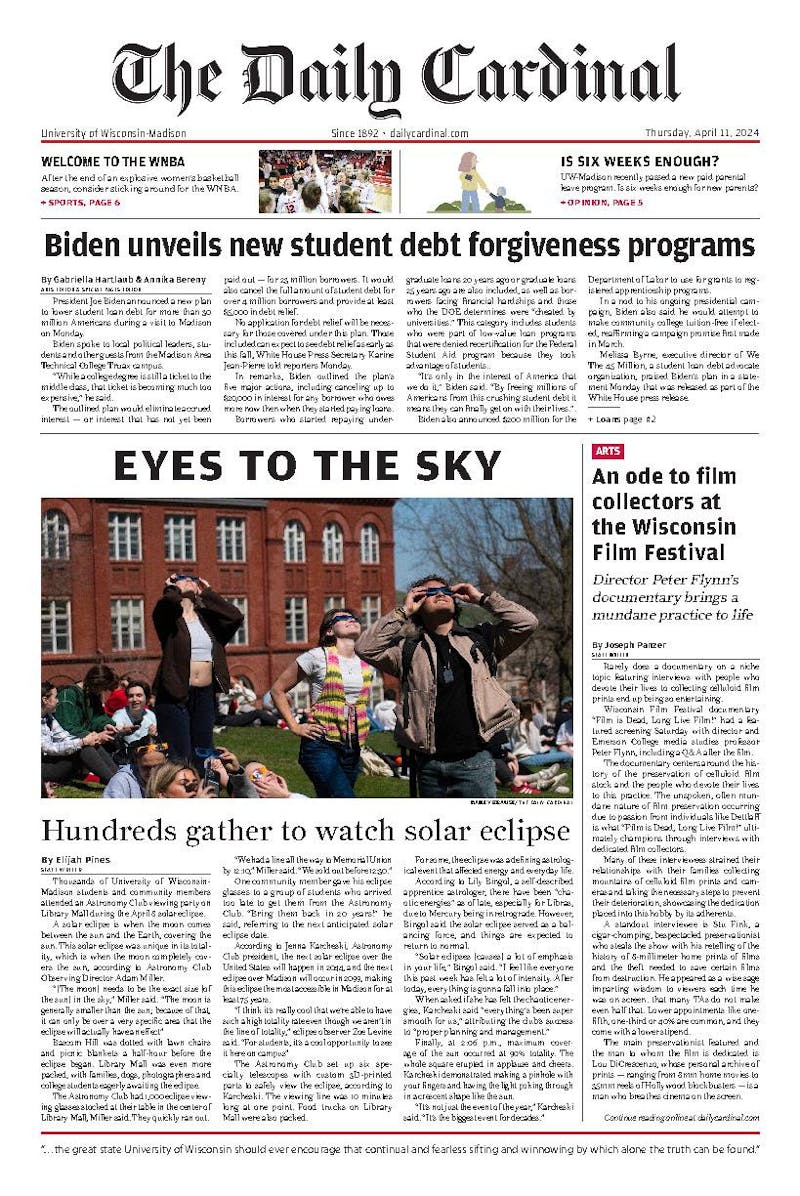The Women’s March last Saturday drew an estimated 100,000 people, about 41 percent of Madison’s total population. In a politically active town with several recent protests—presidential and otherwise—political discussion has been especially prominent in the classroom at UW-Madison.
UW-Madison political science professor Jon Pevehouse says he often pairs newsworthy information with the week’s topic.
“It does help motivate the material that I’m going to cover anyway,” said Pevehouse. “In week eight or nine [of Introduction to International Relations] we’re going to cover international trade and trade agreements, so TPP will still be a big deal then and we’ll still be talking about Trump withdrawing from it so that’s how I’ll lead that lecture off.”
Abigail Swetz, an English and history teacher at O’Keeffe Middle School in Madison, spoke at the Women’s March. For Swetz, sharing opinions should be done tactfully. That’s why her students established a set of classroom rules for when disagreement arises.
“As I said in my speech, we really try to set up some classroom rules that will govern how we go about looking into the policies of these candidates,” said Swetz. “These kids are so politically aware and they are incredibly passionate, but it means things can get a little tense.”
During election years, for U.S. history, Swetz moves the eighth grader’s government unit earlier in the year to set up an election unit. She does this to cover basic structure and function before discussing and researching the candidates and their positions.
“We look at the platforms so we understand the parties and their ideologies and we also look at candidates. We try to understand them as people and how they believe their experience as people also adds to their credentials,” said Swetz.
In her speech, Swetz explained that she was so concerned with candidates’ policies that this year she chose to address her political views with her students.
“This election was so different just because the policies took such a back-burner to the behavior of the candidates in the way the news was talking about the election,” said Swetz.
Conservative freshman Abby Streu said that she has heard many "pointed opinions" in her UW-Madison economics class during the election cycle. Streu said she did not appreciate professors’ tendency to hint their opinions in lecture.
As Swetz found out when setting up classroom rules, political tension pops up. For Pevehouse, certain topics elicit more of a reaction than others.
“There are a few issues that, I find, that set students off more than others and they just sort of have this more visceral reaction to,” Pevehouse said. “People seem to have really strong views about things like Israel or the Palestinians and that’s a particularly challenging subject to teach.”
According to Pevehouse, it’s important to give students the facts so they can examine both sides of an issue. He does this by explaining the politicians’ rationale and people’s reaction, leaving the the rest to interpretation.
Pevehouse said, “I see it as my job to be nonpartisan, but the flip side is it’s not like we can turn ourselves into robots and act like we don’t have views on these things.”

